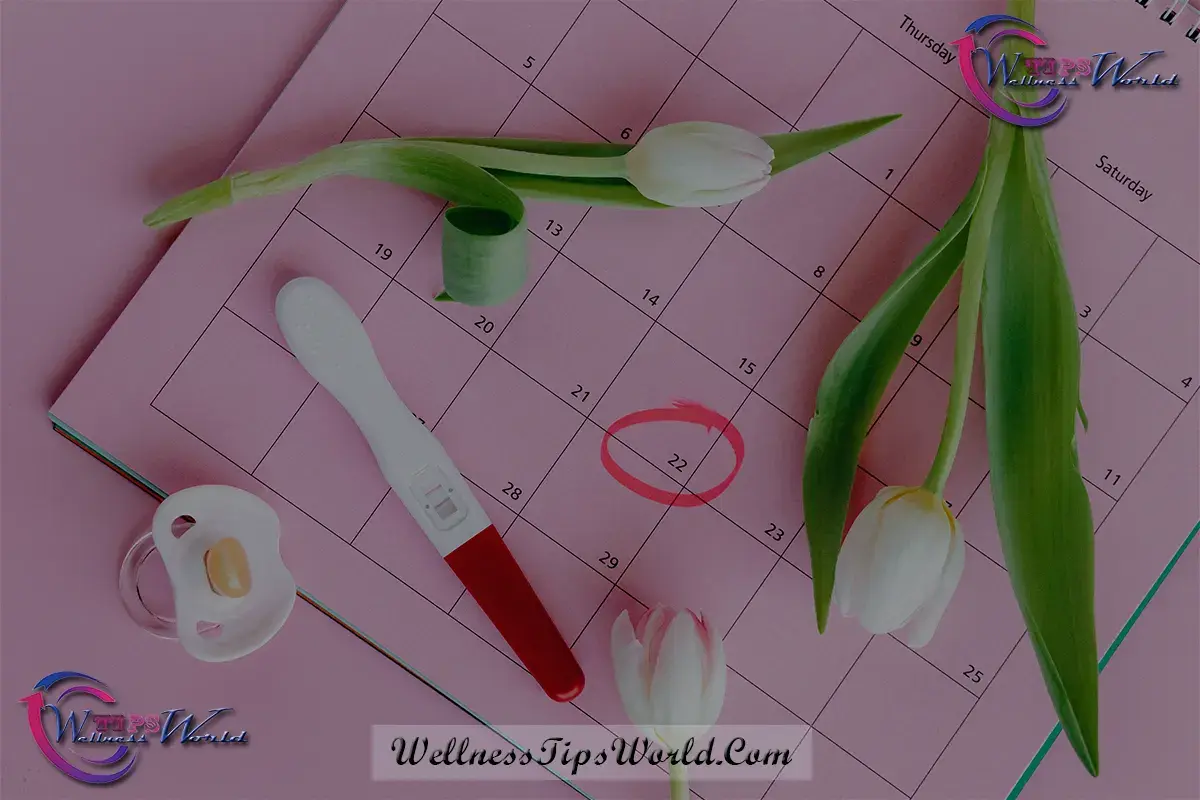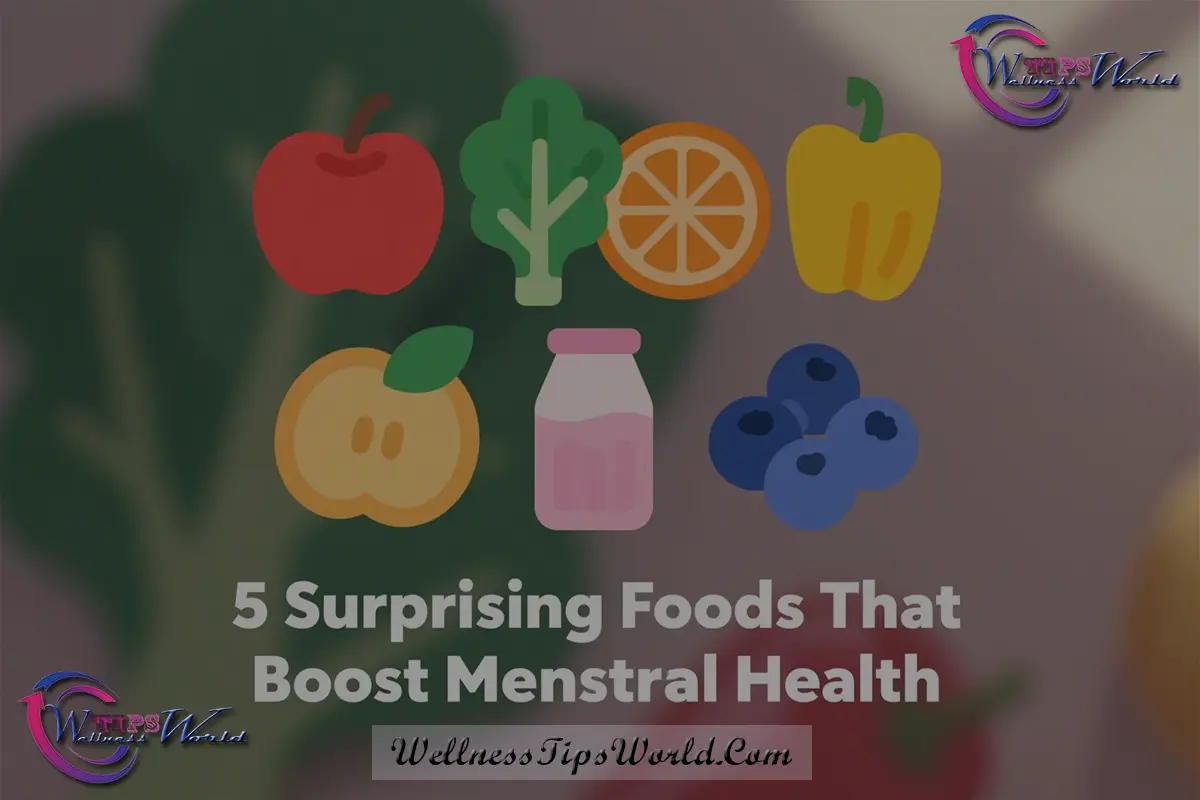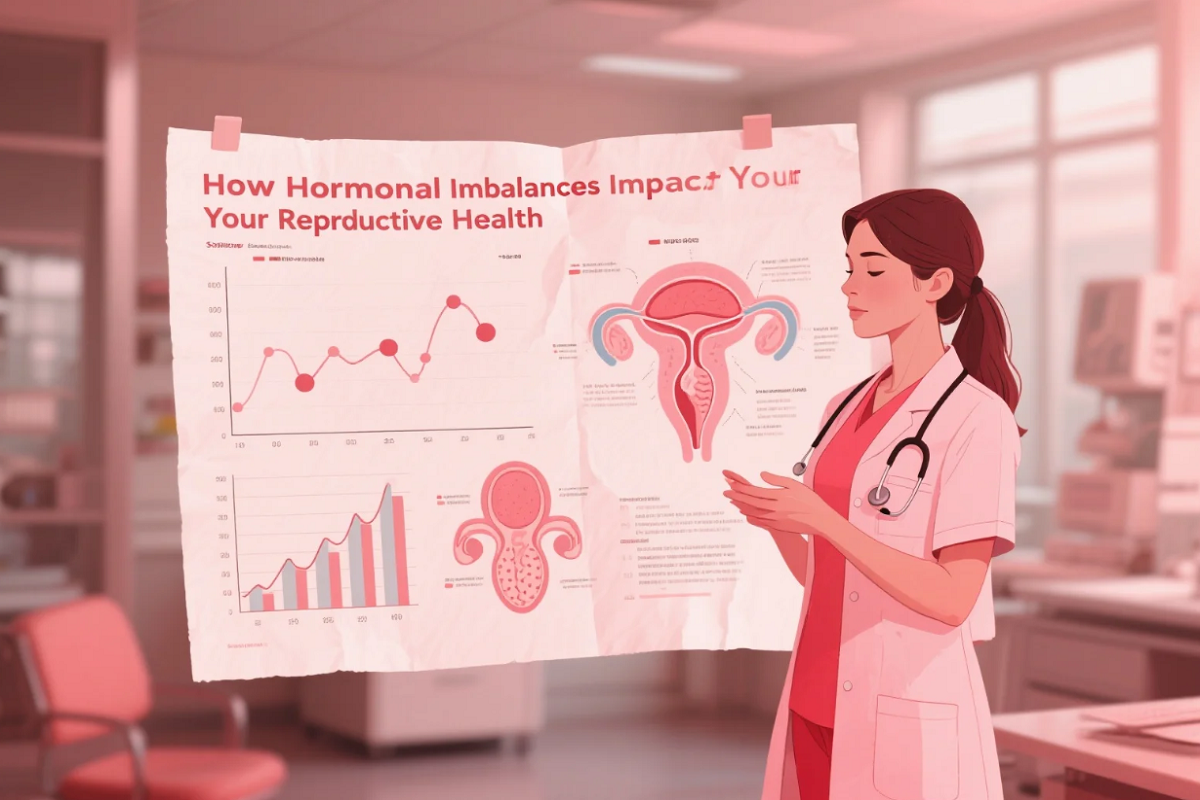How to Balance Your Hormones and Improve Menstrual Health Naturally
-
96
- 28 Mar, 2025

Hormonal imbalances can wreak havoc on a woman's menstrual cycle, affecting everything from the regularity of periods to mood, skin health, and energy levels. If you're struggling with these issues, you're not alone. Many women experience these challenges, but the good news is that there are natural ways to help balance your hormones and improve menstrual health.
In this article, we’ll explore natural methods to balance hormones, foods to support menstrual health, lifestyle changes that make a difference, and how to approach hormone regulation in a holistic way. Whether you're dealing with PMS, irregular cycles, or other hormone-related concerns, this guide provides actionable insights for natural hormone balance.
What is Hormonal Imbalance?
Before diving into natural solutions, it's important to understand what hormonal imbalance means. Hormonal imbalance occurs when your body produces too much or too little of a hormone. This can lead to various health issues, particularly affecting the menstrual cycle. For women, common hormonal imbalances involve estrogen, progesterone, testosterone, and thyroid hormones.
Common symptoms of hormonal imbalances include:
- Irregular periods
- Severe PMS symptoms (mood swings, irritability, etc.)
- Heavy or painful periods
- Acne and other skin problems
- Low energy levels and fatigue
- Weight gain or difficulty losing weight
- Sleep disturbances
Luckily, balancing your hormones naturally is possible through dietary changes, stress management, and other holistic practices.
1. Optimize Your Diet to Support Hormonal Health
What you eat plays a pivotal role in regulating your hormones. A nutrient-dense diet is essential for balancing hormones and improving menstrual health.
Focus on Healthy Fats
Healthy fats are essential for hormone production, as hormones are made from fat molecules. Some healthy fats you can include in your diet are:
- Avocados
- Olive oil
- Coconut oil
- Seeds and nuts, particularly flaxseeds, chia seeds, and walnuts.
These fats support the production of estrogen and progesterone, the two main hormones involved in the menstrual cycle.
Incorporate Cruciferous Vegetables
Cruciferous vegetables like broccoli, cauliflower, and kale contain compounds that help the liver detoxify excess hormones, particularly estrogen. This can be especially helpful for women dealing with estrogen dominance, a condition where the body has too much estrogen in relation to progesterone.
Add Omega-3 Fatty Acids
Omega-3 fatty acids are vital for reducing inflammation in the body and supporting hormonal balance. Foods rich in omega-3s include:
- Fatty fish like salmon and sardines
- Chia seeds
- Flaxseeds
- Walnuts
Including these in your diet can help regulate estrogen levels and reduce the severity of PMS symptoms.
Limit Refined Sugars and Processed Foods
Consuming too many refined sugars and processed foods can cause blood sugar imbalances, which negatively affect insulin levels and, in turn, hormone regulation. Insulin imbalances can lead to symptoms like irregular periods and acne. Opt for whole, unprocessed foods like fruits, vegetables, and whole grains to help maintain stable blood sugar levels.
2. Herbal Remedies to Support Hormonal Health
Several herbs have been shown to support hormone balance and improve menstrual health. While these remedies are often gentle, it’s always a good idea to consult with a healthcare professional before starting any new herbal regimen.
Vitex (Chaste Tree Berry)
Vitex is one of the most popular herbs for balancing hormones. It’s known for its ability to support the pituitary gland, which regulates the production of estrogen and progesterone. Vitex has been shown to improve symptoms of PMS, irregular periods, and mood swings associated with hormonal imbalance.
Maca Root
Maca root is another powerful herb that helps to balance hormones, especially in cases of estrogen dominance. It works by nourishing the adrenal glands and improving energy levels. It’s often used to alleviate symptoms of menopause as well as PMS.
Red Clover
Red clover is packed with phytoestrogens, plant compounds that replicate the effects of estrogen in the body. This herb can help balance hormone levels, reduce hot flashes, and promote overall menstrual health.
3. Manage Stress to Support Hormonal Balance
Stress is a major disruptor of hormonal balance, particularly through its impact on cortisol levels. Chronic stress can lead to high cortisol, which in turn can interfere with thyroid function, progesterone production, and estrogen metabolism.
Practice Mindfulness and Meditation
Engaging in regular mindfulness practices, such as deep breathing, yoga, or meditation, can help lower cortisol levels and restore hormonal equilibrium. Just a few minutes a day of mindful breathing can significantly reduce stress and promote better hormone regulation.
Regular Exercise
While intense workouts may increase cortisol levels, moderate exercise—such as walking, swimming, or yoga—can lower stress hormones and promote overall well-being. Aim for at least 30 minutes of moderate activity a day to help balance hormones and improve menstrual health.
Get Enough Sleep
Sleep is crucial for maintaining optimal hormone levels. Make it a goal to get 7-9 hours of peaceful sleep each night. Poor sleep can interfere with the body’s natural hormone production, particularly growth hormone and cortisol.
4. Detox Your Body for Better Hormonal Health
Over time, your body can accumulate toxins that interfere with hormonal balance. Detoxification helps remove these toxins, promoting healthier hormone levels.
Drink Plenty of Water
Staying hydrated is essential for flushing toxins out of your body. Aim for at least 8 cups of water a day to support detoxification and keep your hormones functioning properly.
Support Your Liver with Foods and Herbs
The liver plays a key role in detoxifying excess estrogen and other hormones. You can support liver health by consuming foods like garlic, lemon, and turmeric, or herbs like dandelion root and milk thistle.
5. Consider Supplements for Hormonal Health
While it’s best to focus on diet and lifestyle changes, certain supplements may support hormonal balance. Below are some supplements to consider:
Vitamin D
Vitamin D is essential for hormone production, particularly for estrogen and progesterone. If you’re not getting enough sunlight, consider taking a high-quality Vitamin D supplement.
Magnesium
Magnesium plays a crucial role in reducing PMS symptoms and supporting overall hormone regulation. It also helps with sleep quality, which is essential for menstrual health.
Probiotics
Your gut health has a direct impact on your hormonal health. Taking a probiotic supplement can help restore balance to your gut microbiome, supporting better hormone metabolism and reducing symptoms of hormonal imbalance.
Balancing your hormones and improving menstrual health naturally is possible with the right approach. By focusing on a nutrient-rich diet, incorporating stress-management techniques, using herbal remedies, and maintaining a healthy lifestyle, you can support your body’s natural hormonal rhythms. It’s important to remember that everyone's body is different, and results may take time, so be patient and consistent in your efforts.
By incorporating these natural methods, you can take charge of your menstrual health and experience more balance in your life.










